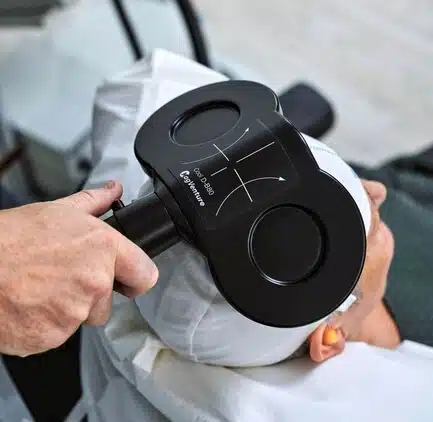What is TMS?
Transcranial Magnetic Stimulation (TMS) is a groundbreaking non-invasive procedure that utilizes magnetic fields to stimulate nerve cells in the brain, effectively treating symptoms of depression in individuals who have not responded adequately to traditional antidepressant medications. It is FDA-approved and has been recognized as a safe and effective alternative for managing depression.
depression.

How Does TMS Work?
TMS works by delivering highly focused magnetic pulses to specific areas of the brain known to be involved in mood regulation, such as the prefrontal cortex. During a TMS session, a coil is placed gently against the scalp, and short pulses are administered, generating small electrical currents that stimulate nerve cells in the targeted region. These pulses help to activate regions of the brain that are underactive in depression, leading to improved mood and overall well-being.

Unlike electroconvulsive therapy (ECT), TMS does not require anesthesia or sedation, and it does not induce seizures. This makes it a much more comfortable and convenient option for patients seeking relief from depression symptoms without the associated side effects of traditional treatments.
Minimal Side Effects: Unlike many antidepressant medications that can cause a wide range of side effects, TMS is associated with minimal adverse effects. The most common side effect reported is mild scalp discomfort or headache, which typically resolves quickly after the session.
Effective: Numerous clinical studies have demonstrated the effectiveness of TMS in reducing symptoms of depression, even in cases where other treatments have failed. Many patients experience significant improvement in mood, energy levels, and overall quality of life following a course of TMS therapy.
Customized Treatment Plans: TMS treatment can be tailored to each individual’s unique needs, with the ability to adjust the intensity and frequency of the magnetic pulses based on their response. This personalized approach maximizes the likelihood of success and ensures optimal outcomes for patients.
Long-lasting Results: For many patients, the benefits of TMS extend beyond the treatment period, with improvements in mood and depressive symptoms lasting months to years after completing therapy. This long-lasting relief provides hope for individuals struggling with treatment-resistant

